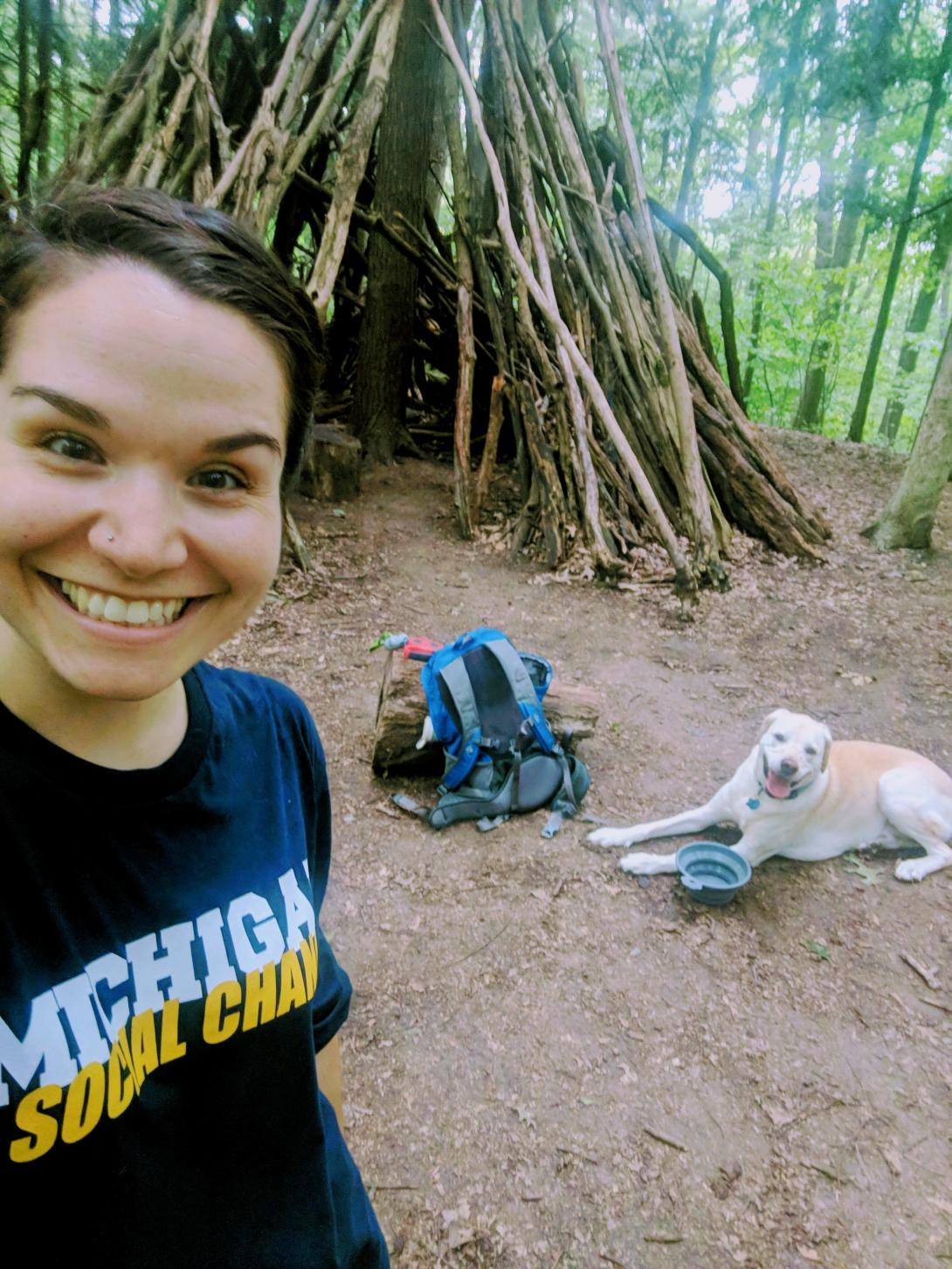Our staff spotlight this week is Cecilia Morales. Cecilia is the Engaged Scholarship Manager at the Ginsberg Center.
What is your professional background in?
I received my PhD in English at the University of Michigan about a year ago. I studied early modern literature, which is a very far field from service learning the Ginsberg Center does. It was a bit of a shift for me, but throughout grad school I was very interested in how to apply the theoretical and historical knowledge that I was gaining to create change. I participated in a lot of Rackham programs assigned to help PhD students do that. Through these programs I got connected to the Ginsberg Center. In some sense it was a shift in my educational path, but in another sense I was thinking about these questions all throughout grad school. During grad school I thought a lot about ethical pedagogy, anti-racist pedagogy, and the public scholarship mindset of how I could actually apply these things that I am studying to the real world.
What is your job function at the Ginsberg Center?
My title is Engaged scholarship Manager and I work on Academic Partner facing work with Neeraja. We work together to do resource development to support faculty and academic partners. I support various initiatives but a big part of my job is overseeing the Graduate Academic Liaison program. I work with the Graduate Student Facilitators to train them to facilitate workshops with students. I help the faculty to set up workshops and do consultations with them before the workshops to make sure these workshops are fulfilling their objectives for the students and are helping to prepare the students for community engagement. Another large part of my job is running the Michigan Journal of Community Service Learning. I am one of the co-editors of the journal and also the main manager, so I oversee the day to day functions.
What is one of your favorite projects you have worked on at the Ginsberg Center?
My favorite part of my job is working with graduate students because I went through the Graduate Academic Liaison Program as a student at U-M. It is really rewarding to be able to support them in their career goals, and help them think about equitable partnerships, collective impact, social justice, and leadership. All of these things are built into our workshop curriculum and into the Graduate Academic Liaison program. It is really exciting to help graduate students think through how this can apply to their jobs, whether or not they want to be traditional academics and be professors, do an Alternative-Academic job, or get jobs outside of the University.
What are your social change interests in your personal life?
I am working on a grant that is with feminist scholars about exploring the concept of ambivalence and how it applies both in scholarship and activism. The team working on the grant is an interdisciplinary team that is deeply rooted in theorizing ambivalence but also takes this active component of thinking about what it would look like to think about ambivalence as an alternative. A Lot of the team is interested in reproductive rights. The project is currently amorphis but we are looking to have an impact on contributing conversation around reproductive rights, racial justice, and voter engagement.
What has helped you during the pandemic (object, cooking, food, TV, etc.)
A lot of the things that I like to do for fun are about getting outside and in some ways the pandemic has encouraged me to live into those interests. A year ago I would probably laugh at you if you were like ‘let's go camping in the winter’ but now I'm like ‘ok lets do it!’. I also love cooking and have been exploring new recipes and taking on more complicated recipes which is helping me to feel like I am feeding my body and feeding my spirit.

